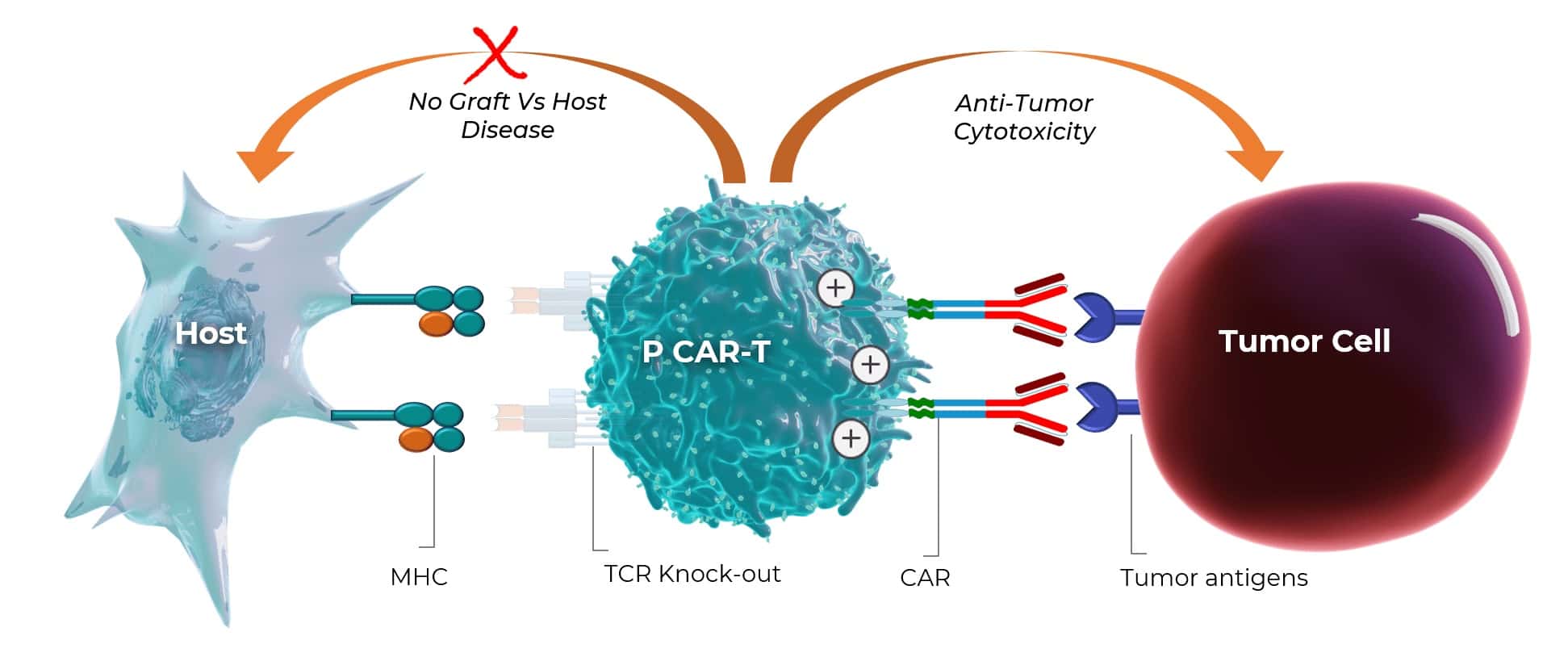P CAR-T cells are in development for the treatment of hematological and solid tumor indications. We have demonstrated that pCAR-T cells exhibit potent anti-tumor activity both in vitro and in vivo.
– Xiaokui Zhang, PhD, Chief Scientific Officer
CyCART
Cryopreserved Chimeric Antigen Receptor T cells
Allogeneic P CAR-T with TCR KO

Chimeric Antigen Receptor T cells (CAR-T) are genetically engineered T cells that are modified to express an artificial T cell receptor on their surface that binds and targets cancer proteins in an HLA-independent manner.
We are developing an allogeneic placental T cell platform derived from the postpartum human placenta. Placental T cells are engineered with CAR expression, and knockout of endogenous T cell receptors (TCR) termed P CAR-T.
Unlike adult peripheral blood mononuclear cell derived T cells, placental-derived CAR T cells are mostly naïve (CD45RA+), expand readily ex vivo, express markers of stem cell memory, and have lower expression of effector or exhaustion markers, allowing for greater proliferative potential of these cells in vivo.
P CAR-T cells are in development for the treatment of hematological and solid tumor indications. We have demonstrated that pCAR-T cells exhibit potent anti-tumor activity both in vitro and in vivo.
Several CAR-T cell therapies have already been approved by the FDA, but these treatments all require extraction and processing of a patient’s own cells, an expensive and non-scalable process. Celularity is developing placental-derived CAR-T cells as an allogeneic cell therapy that can be used without the need to match patient with donor.
– Robert J Hariri, MD, PhD
RESOURCES
61ST ASH ANNUAL MEETING, 2019, POSTER SESSION
Preclinical Evaluation of Human Placental-derived Allogeneic CD19 CAR-T Cells Against B Cell Malignancies
AACR ANNUAL MEETING 2020, POSTER SESSION
Generation and Characterization of Human Placental-derived CD19 CAR-T Cells Using Viral Vectors